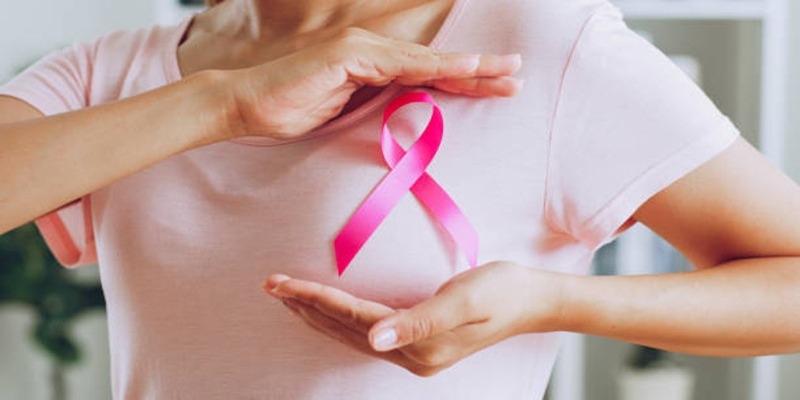Understanding Chemotherapy: A Comprehensive Guide
Dec 13, 2023 By Madison Evans
For those dealing with a cancer diagnosis, one of the most frightening aspects is understanding chemotherapy and what to expect. It can be daunting to face major changes in lifestyle while also receiving medication that could have life-altering side effects. To help put your mind at ease and get more information about what chemo entails, we've created this comprehensive guide. In this post, we'll discuss chemotherapy: its role in treating cancer, how it works, possible side effects associated with it, and different ways you can manage them. With this knowledge on hand, you will feel more prepared when entering into treatment for your specific type of cancer.
Definition of Chemotherapy
Chemotherapy, often referred to as "chemo," is the use of drugs or medicines to treat cancer. The chemo drugs work by targeting rapidly growing cells (such as those found in cancer) and destroying them before they can spread further. It is usually a major component of most cancer treatments, working alongside surgery, radiation therapy, and other forms of treatment.
How Does Chemotherapy Work?
Chemo works by targeting and destroying rapidly growing cells in the body, which can include cancerous ones. It does this by blocking certain processes within the cell or disrupting its ability to reproduce itself. Different types of chemo drugs work on different types of cancer cells, so it's important for your doctor to select the right drugs and amounts for your specific form of cancer.
Types of Chemotherapy

Alkylating Agents
Alkylating agents are some of the oldest and most commonly used chemotherapy drugs. They work by binding to the DNA in cancer cells and slowing or stopping their growth. Examples of alkylating agents include cyclophosphamide, melphalan, and cisplatin.
Antimetabolites
Antimetabolites target a cell's ability to metabolize or process nutrients. They are very similar to the molecules needed for cells to replicate themselves, so when a cell attempts to use an antimetabolite as fuel, it can't complete its replication and eventually dies. Examples of antimetabolites include gemcitabine and fluorouracil.
Anti-tumor Antibiotics
Antibiotics are used to treat infections, but some can also be used as a form of chemotherapy. They work by targeting rapidly-growing cancer cells and killing them before they can spread further. Examples of antibiotics used for chemo include doxorubicin and bleomycin.
Topoisomerase Inhibitors
Topoisomerase inhibitors are drugs that target and disable an enzyme called topoisomerase, which is essential for a cell to replicate itself. Examples of topoisomerase inhibitors include etoposide and irinotecan.
Purpose of Chemotherapy
Chemotherapy can be used for a variety of purposes, such as:
- To shrink or slow the growth of tumors before surgery.
- To treat cancer that has spread to other parts of the body.
- To prevent cancer from returning after treatment.
- To relieve symptoms caused by cancer, like pain and shortness of breath.
It is important to remember that chemotherapy is not a cure for cancer, but it can help control the disease and extend life expectancy.
Side Effects of Chemotherapy
Chemotherapy can have a variety of side effects depending on the type of drug used and the length of time it is taken. Common side effects include nausea, vomiting, fatigue, hair loss, and an increased risk of infections.
It can also cause changes in blood pressure, appetite, and mental functioning. Talk to your doctor about the specific drugs you are taking and any possible side effects they may have.
Managing the Side Effects of Chemotherapy

The side effects of chemotherapy can be managed with the help of your doctor. They may recommend medications to manage nausea, pain, and other symptoms. They may also suggest lifestyle changes, such as eating healthy foods and getting enough rest.
It is important to remember that everyone reacts differently to chemo drugs, so you should not feel ashamed or embarrassed if you are having difficulty managing your side effects.
Chemotherapy can be a difficult experience, but there are many ways to make it more bearable. For instance, joining support groups or talking to people who have had similar experiences can provide comfort and understanding.
Exercise is another great way to cope with chemo side effects. Studies have found that physical activity can help reduce fatigue and depression associated with chemotherapy.
Finally, it is important to remember that there are many treatments available to help you manage your cancer and improve your quality of life. Talk to your doctor about which ones may be right for you.
Conclusion
Chemotherapy is an important part of the overall treatment for cancer and it can help prolong life expectancy. Before beginning chemotherapy, it is important to understand how it works and what type of drugs will be used. It is also important to know what side effects may occur, and how they can be managed.
Although chemotherapy can be difficult, there are many resources and treatments available to help manage symptoms and improve quality of life. With the right information, you can feel more prepared when entering this treatment for your specific type of cancer.
-
 Jan 24, 2024
Jan 24, 2024Everything You Need to Know About Anesthesia: A Detailed Exploration
Understand the intricacies of anesthesia with our comprehensive guide, covering its types, uses, how it works, and what to expect during recovery.
-
 Jul 10, 2024
Jul 10, 2024Bothered by Expression Lines? Here Are 10 Effective Tips to Eliminate Them
Discover effective methods to reduce expression lines and maintain youthful skin with these expert skincare tips and techniques.
-
 Jul 10, 2024
Jul 10, 2024Discovering the Best Hair Growth Remedy: Onion vs. Garlic
Discover the benefits of using onion and garlic for hair growth. This guide covers their unique properties, preparation methods, and effectiveness for achieving stronger, healthier hair.
-
 Feb 16, 2024
Feb 16, 2024All About Breast Cancer: A Detailed Overview
This comprehensive guide covers various types of breast cancer, their symptoms, risk factors, and treatment options. It also provides tips for managing life after diagnosis.
